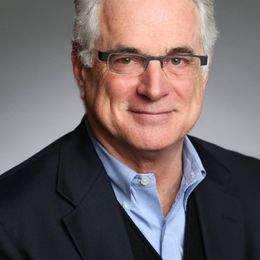Rethinking Retirement: Implications for Younger Generations
The Encore.org conference finds boomers leading the way for Gen Y
Sometime back in the early 1970s, I was caddying for my older brother (a boomer) and father. We were joined by a pair of sixtysomething businessmen who complained for several holes about boomers. They were entitled. They didn’t listen. They didn’t understand corporate loyalty. They refused to work hard.
Of course, their crude generational prejudices were nasty and silly. These days, I’ve overheard similarly ignorant conversations with the same language to complain about Millennials. Seriously? C’mon.
Report From the Encore.org Conference
I thought about that summer day while joining 400+ attendees at the annual Encore.org Encore2016 conference in downtown San Francisco on Feb. 9-11, promoting a vision of older Americans taking their talent, wisdom and experience to address society’s most pressing issues during their traditional retirement years. Encore.org is part of a larger movement of boomers staying engaged in the workforce, usually with part-time, flexible jobs — in what I call unretirement.
Sad to say, a cottage industry now profits from stoking the notion of intergenerational conflict in the workplace and society at large. I’m sadly flooded with emails from public relations firms offering “expert” advice on how to prevent warring members of Gen Y, Gen X and the boomer cohorts from destroying an employer’s productivity. The rise of intergenerational warfare — think Social Security — is a common political refrain in Washington, D.C.
Here’s the truth: The evidence is compelling that far more unites the generations than divides them, especially regarding work. Most young adults are eager to land a job offering a paycheck and a purpose. The same spirit increasingly motivates Gen X’ers and boomers.
At the Encore conference, dubbed Celebrating the Encore Effect, William Shutkin, the 51-year-old president and CEO of the Presidio Graduate School in San Francisco, said the common refrain among the generations is: “Can I make a good living and do something that is meaningful?”
Younger and Older Workers Help Each Other
Scholars are finding growing evidence that younger and older employees complement one another. For instance, the Centre for European Economic Research has found that the combination of younger employees (with innovative knowledge) and older employees (with expertise) improves overall productivity.
One of the more intriguing themes at the conference was engaging younger generations in the encore movement. Indeed, I think with time, the most powerful social impact of unretirement and encore will be from reshaping how younger generations think about the arc of their work lives that may well last 70 years. That’s right. With improved life expectancy, seven decades on the job is certainly possible.
The younger generation will eventually realize that they’ll have time to try different career paths — what journalist Farai Chideya calls “the episodic career” in her new book of that title — to alternate the rhythm of their lives. Sometimes, they’ll push themselves deep into the job and at others, they’ll kick back to explore other opportunities to enrich their lives.
“Money is a means to cover overhead so I can do what I want to be doing,” said Amy Merrill, chief partnership officer at Change Heroes (a social enterprise on a mission to create transformative experiences and foster a global community) and a Millennial, at the Encore.org conference.
Boomers, Gen Y, Gen X and the Encore Movement
The boomers are pointing the way, but the generations behind them will be the main beneficiaries of the shift in expectations. When I attended the conference session, Engaging Millennials and Gen X'ers in the Encore Movement, I couldn’t help but notice how much the insights of the different generations fed off each other.
This is exciting.
We should embrace the diversity that comes from people of all ages and backgrounds dealing with, and learning from, one another at the workplace. And we need employers and government policymakers to adapt to today’s profound changes in how, and for how many years, Americans work — and want to work.
No, the problem doesn’t lie with the generations, but in our lack of imagination in seizing the opportunities opening up in the new era of unretirement and encore.
“People have changed dramatically, but our institutions and public policies are stuck in a different era,” says Marc Freedman, founder and CEO of Encore.org. It’s time to embrace the change.


